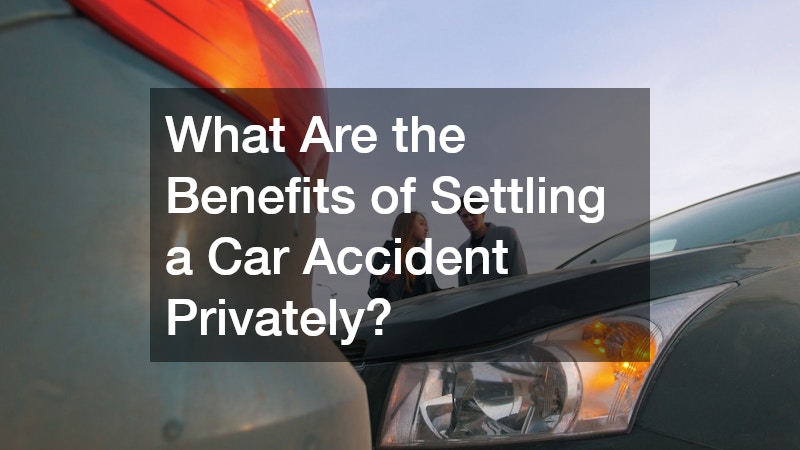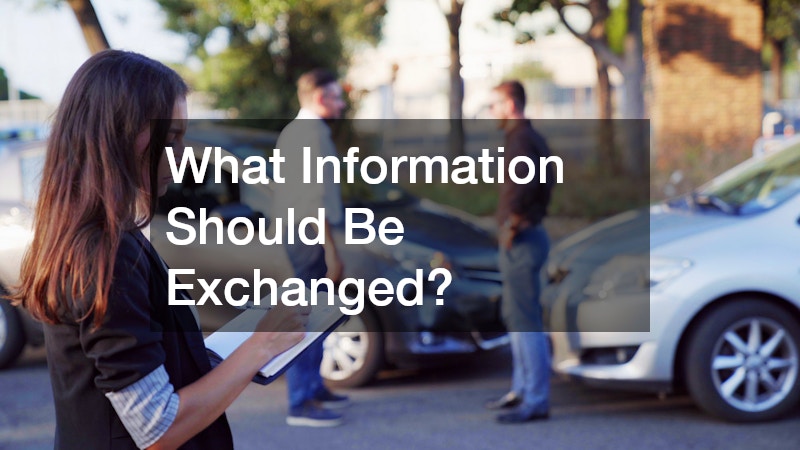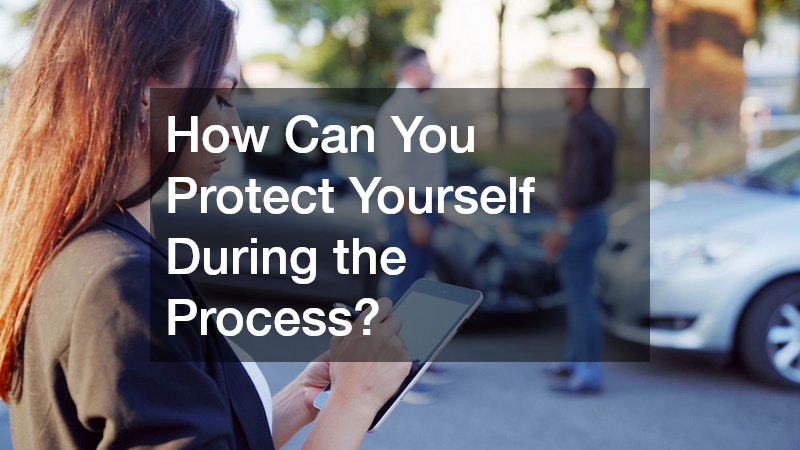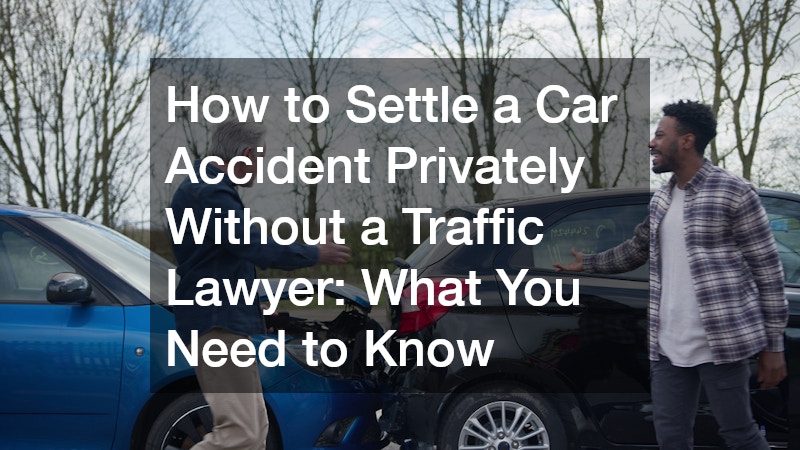
How to Settle a Car Accident Privately Without a Traffic Lawyer: What You Need to Know
Introduction
In the aftermath of a car accident, most drivers assume that their only recourse is to contact a traffic lawyer, notify their insurance company, or prepare for a courtroom battle. However, in certain situations—particularly when the damage is minor and both parties are cooperative—it’s entirely possible to settle the incident privately. For many, this path offers less stress, fewer costs, and more control over the outcome.
This comprehensive guide explores how to settle a car accident privately, covering essential steps, key considerations, and potential pitfalls. Whether you’re dealing with a scratched bumper from a misjudged parallel park or a minor collision in a residential paving zone, understanding your rights and responsibilities is crucial. With the right preparation, even those unfamiliar with legal and insurance processes can reach a fair and lawful resolution—without involving a car accident attorney or dragging the issue through the courts.

What Are the Benefits of Settling a Car Accident Privately?
Save Time and Money
One of the primary reasons drivers consider a private settlement is to avoid the expenses associated with formal legal proceedings and insurance claims. Between rising premiums, deductibles, and attorney fees, the financial burden can be significant. Bypassing the need for professional representation from local injury lawyers or personal injury attorneys means more money stays in your pocket—especially in cases where damage is cosmetic and no injuries are reported.
Maintain Privacy
Legal disputes, especially those that involve multiple parties or potential fault, can become public record. Settling privately allows both parties to resolve matters discreetly, without involving third parties or opening the door to additional legal inquiries, like those that might arise from a connected local divorce attorney case or an unrelated traffic infraction.
Reduce Stress and Conflict
Legal disputes often escalate tensions, prolong resolutions, and contribute to emotional fatigue. A private settlement allows for cooperative negotiation, encouraging civility and direct communication rather than confrontational litigation tactics that a traffic lawyer might typically use.
When Is It Appropriate to Settle a Car Accident Privately?
Minor Damages
Private settlements work best when property damage is minimal. A fender-bender in a parking lot or a scrape on a bumper from a slow-speed collision can often be resolved without insurance intervention. These situations are common in crowded areas or near active construction zones involving residential paving or local asphalt companies.
No Injuries Involved
If no one is hurt, the stakes are significantly lower. Any accident involving potential injury—even if the symptoms are delayed—should be evaluated by a medical professional, and it’s wise to consult with personal injury attorneys before proceeding privately.
Mutual Agreement Between Parties
Both drivers must be on the same page. If there’s disagreement over fault, value of the damages, or whether to involve insurance, it may not be possible to settle the car accident privately. A mutual willingness to resolve the issue without a car accident attorney is a must.
How Do You Initiate a Private Settlement?
Exchange Information
Immediately after the accident, calmly exchange essential contact and vehicle information. Even if you’re avoiding formal channels, collecting accurate information ensures accountability and enables a written agreement if necessary.
Document the Scene
Take detailed photos of all visible damage, surrounding conditions (e.g., a nearby auto body shop or hazard sign), and any relevant context such as skid marks or construction signs from asphalt companies. If road conditions, such as loose gravel from recent paving, contributed to the accident, this evidence might come into play later.
Approach with a Proposal
Once you’ve both had time to assess the situation, reach out with a fair settlement proposal. Be clear about your intentions: “I’d like to handle this privately without going through insurance, and I’m prepared to pay for the auto repair directly.” Including estimates from a reputable auto transmission repair shop or local auto body shop strengthens your position and helps keep negotiations fact-based.

What Information Should Be Exchanged?
Contact Details
Include full names, addresses, phone numbers, and driver’s license numbers. This ensures each party is reachable and accountable in case further communication is necessary.
Insurance Information
Even if you don’t plan to use it, sharing insurance details ensures that both parties can verify legitimacy. It also protects you in case the other party decides to involve a traffic lawyer later on.
Vehicle Identification
Record the make, model, license plate, and VIN (Vehicle Identification Number) of each vehicle involved. Cross-reference this with photos for thorough documentation.
How to Assess Damages Accurately?
Get a Repair Estimate
Visit a trusted auto body shop or dealership and request a formal repair estimate. Include photos and a description of the incident. For issues involving mechanical parts—like those related to auto transmission repair—mechanic inspections may be necessary. Ensure the shop itemizes every cost to avoid disputes later.
Consider Depreciation
Damage, even if repaired, can affect a vehicle’s resale value. Factor in diminished value when negotiating a settlement. Websites like Kelley Blue Book and Edmunds can help estimate the pre- and post-accident value of your vehicle.
Factor in Non-Visible Damages
Minor-looking accidents can cause hidden damage—like misaligned frames or axle issues. If the incident occurred near speed bumps or on uneven terrain, especially around ongoing residential paving work, have the vehicle inspected thoroughly.
Is a Written Agreement Necessary?
Drafting a Settlement Agreement
Yes, a written agreement is strongly advised. Verbal promises are hard to enforce. A settlement agreement outlines what happened, what damages are being paid for, who is responsible, and confirms that both parties agree to forgo further legal or insurance claims.
Key Clauses to Include
-
Date and location of the accident
-
Description of damages
-
Names and contact information of both parties
-
Statement of agreement to settle privately
-
Amount paid and agreed method of payment
-
A liability waiver (e.g., “This settlement represents full satisfaction for any claims.”)
Importance of Signatures
Both parties should sign the agreement and retain a copy. Signatures demonstrate mutual consent, and the document can act as evidence if future disputes arise. Some people also choose to have it notarized for added legitimacy.

How Do Insurance Companies View Private Settlements?
Implications for Policyholders
Most insurance policies require that you report all accidents—even if you don’t file a claim. Failing to do so could violate the terms of your policy. However, many people choose not to report minor incidents to avoid premium hikes.
Reporting Requirements
Some states legally require accident reports if damages exceed a certain amount (e.g., $1,000) or if public property is damaged. Check your local laws before deciding to handle things privately.
Potential Impact on Premiums
Filing a claim—even when you’re not at fault—can increase your premiums. This is why many drivers prefer private settlements after minor incidents. Avoiding a formal report can help preserve your clean record with your insurer and prevent automatic rate increases.
What if the Other Party is Not Cooperative?
Communication Strategies
Stay polite, calm, and persistent. Try written communication if verbal talks stall. Present your offer clearly and explain why a private settlement is beneficial to both parties.
Mediation Options
If negotiations break down, you might consider informal mediation. Some community dispute resolution centers or even local auto repair professionals may offer mediation or negotiation assistance.
When to Consider Legal Action
If the other party is being unreasonable, dishonest, or stops responding, it may be time to involve a car accident attorney. Most personal injury attorneys offer free consultations and can advise whether pursuing a claim is worthwhile.
Are There Any Legal Risks Involved?
Statute of Limitations
Just because you’re handling things privately doesn’t mean the clock stops. Every state has a statute of limitations for car accident claims. If the private settlement falls apart, you still need to act within legal timeframes to pursue your claim.
Enforcement of the Agreement
If the other party agrees to pay and then fails to do so, your written agreement can serve as evidence in small claims court. Without this documentation, you’ll have a much harder time proving the terms of the settlement.
Possible Liabilities
If the other driver later claims injury—even after agreeing to a private settlement—you could still be held liable. This is where waivers and proper documentation become essential. Local injury lawyers or personal injury attorneys can review your agreement to ensure it’s airtight.

How Can You Protect Yourself During the Process?
Keeping Detailed Records
Save everything—photos, emails, text messages, receipts, witness statements, and repair quotes. An organization can make or break your ability to defend yourself if the settlement is later contested.
Utilizing Witness Statements
If anyone witnessed the accident—other drivers, pedestrians, or even employees from nearby auto body shops or asphalt companies—get their contact information and a brief written statement. Independent accounts lend credibility to your version of events.
Seeking Professional Advice
While you may not want to involve a traffic lawyer or car accident attorney immediately, it’s smart to run your agreement past a legal professional. Many attorneys will review contracts or provide one-time consultations for a flat fee. This small investment can prevent major issues down the road.
Conclusion
Settling a car accident privately can be a smart, efficient, and mutually beneficial option—especially when the incident is minor, both parties are cooperative, and there are no injuries involved. It provides a practical alternative to the complexities of formal litigation and insurance claims, allowing drivers to resolve issues quickly, affordably, and with greater autonomy. For many, especially those concerned about rising insurance premiums or the potential for future disputes, private settlements offer a way to close the chapter without unnecessary entanglements.
By choosing to bypass the formal legal process, you can avoid inflated premiums, reduce the risk of becoming involved in a drawn-out legal battle, and minimize the anxiety that often follows a traffic incident. Rather than relying on the intervention of a traffic lawyer or navigating the intricacies of an insurance policy, drivers who understand the process can resolve matters on their own terms—directly and respectfully.
That said, private settlements are not without risk. The process requires diligent attention to detail and a commitment to fairness from both parties. Proper documentation, including photographs, witness statements, and a formal written agreement, is crucial. Skipping steps—like failing to obtain an accurate damage estimate from an auto repair professional or overlooking potential non-visible issues related to auto transmission repair—can leave one or both parties exposed to future liability. Even something as simple as not collecting insurance and contact information can turn a well-meaning agreement into a legal headache.
In scenarios where damages seem minor but could have broader implications—such as structural damage, mechanical failures, or repair costs that may rise unexpectedly—it’s wise to consult professionals. A quick review by an auto body shop or input from a local injury lawyer can provide clarity and protect your interests. Similarly, if the accident occurred near ongoing construction work, residential paving zones, or around active asphalt companies, determining liability may be more complicated than it first appears. In these cases, seeking legal advice from a personal injury attorney or car accident attorney can prevent costly misunderstandings later.
In situations involving potential injuries—even those that aren’t immediately apparent—the risk of legal action increases. What seems like a straightforward agreement could be challenged if one party develops symptoms days later. This is where legal protections and thorough records are essential. A settlement agreement should clearly state that both parties are releasing each other from future claims, covering all foreseeable and unforeseen consequences of the accident.
Ultimately, knowing how to settle a car accident privately gives you more than just financial and legal benefits—it gives you peace of mind. It allows you to take ownership of the situation, handle it with responsibility and professionalism, and avoid the overwhelming bureaucracy that can accompany insurance claims or court proceedings. When done correctly, it’s a respectful, reasonable solution that empowers individuals to resolve their own conflicts with clarity and fairness.
